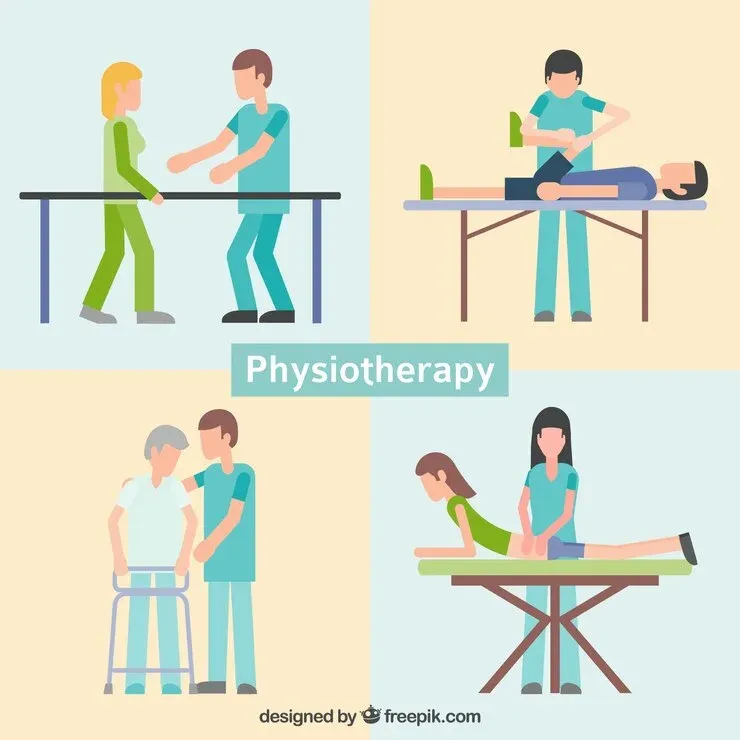How to Become a Physiotherapist?
Updated: 5 December 2024, 8:16 pm IST
The human body is a machine and it takes care and awareness to keep it running smoothly at all times. Sometimes one body part may start slowing down or not be able to perform to its maximum capacity. That is when we need specialists like physiotherapists who are trained to provide personalized treatment plans for providing relief from pain and discomfort and help restore mobility and flexibility in body muscles and joints. If you too are keen on pursuing the career path of a physiotherapist after the 12th, this blog shares complete details on how to become a physiotherapist in India.
Get Complete Details From Expert
Request a call →Who Is A Physiotherapist?

They are also sometimes referred to as physical therapists. A physiotherapist is a healthcare professional responsible for maintaining the physical well-being and overall mobility of patients. With their specialized treatment plans, these professionals assist patients in managing pain and leading a normal and comfortable lifestyle. They also ensure that the patients not only recover faster but can also prevent the recurrence of injuries or pain in the future by guiding and offering personalized treatment plans.
How To Become A Physiotherapist In India?

If you think the above interests you, here are some easy steps to follow to become a physiotherapist in India:
Step 1: 10+2 Completion
This is the basic requirement before you train to be a physiotherapist. Most universities require students to have completed their 10+2 with a minimum overall aggregate of 50% with Physics, Chemistry, and Biology as mandatory subjects, and Mathematics as optional.
Step 2: Undergraduate Degree
Once you have completed your 10+2 basic qualification, earning a Bachelor’s degree is the next step. You can choose to pursue undergraduate physiotherapy courses after the 12th. You have the option of a diploma in physiotherapy or a Bachelor of Physiotherapy (BPT). The former is a three-year program while the Bachelor’s degree is a four-year course with a mandatory internship of 6 months.
Step 3: Pursue A Master’s
This is a popular choice among many physiotherapy graduates, as they prefer to continue advanced studies in the domain. You may choose between a PG Diploma in Physiotherapy or a Master of Physiotherapy (MPT), both two-year programs requiring clearance of an entrance examination to qualify for admission to the course. Postgraduate courses allow students to choose an area of specialization in line with their future career goals. These can be orthopedic, geriatric, sports, clinical electrophysiology, and pediatric physiotherapy. A Master’s degree can help you earn better job roles and higher salaries.
Step 4: Earn Professional Experience
This allows you to apply the knowledge and skills learned during your physiotherapy courses to practical use in real-world healthcare settings. Most Bachelor’s courses require students to complete a mandatory 6-month training program for work experience. In addition to that, gaining work experience in a related or relevant domain upon graduation is helpful for students. You may choose to work in a hospital, clinic, or any other medical facility.
Step 5: Build Your Resume
Gaining some work experience by way of an internship is the first step on your career path when you train as a physiotherapist. You can then move on to a full-fledged job search by preparing your resume and highlighting your qualifications and work experience gained so far. Consider finding jobs in athletic training centers, rehab centers, hospitals, outpatient clinics, nursing facilities, and home health providers.
Call Us For Any Query:- 1800 102 3434
Role Of A Physiotherapist

Physiotherapists perform a variety of duties to ensure the overall mobility and physical well-being of the patients. Some of their responsibilities are detailed as follows:
- They refer the patients to other appropriate health professionals, as and when required, for their overall health restoration.
- They work closely with patients, helping them find relief from joint or muscular pain and other mobility issues in the body.
- They work on preventing gradual loss of mobility in patients due to any disease, injury, or disorder.
- They help restore the mobility of patients through various personalized exercises.
- They design treatment plans for patients to prevent disability, improve overall mobility, restore functioning, and provide relief from extreme pain.
- They identify, diagnose, and suggest appropriate treatment for the patient’s health condition.
- They maintain health records for all patients.
Types Of Physiotherapists

Students pursuing a physiotherapy course can choose from a wide range of specializations as per their academic interests and career aspirations. Based on your choice, you can opt to follow that particular line of physiotherapy in your future career path:
- Geriatric Physiotherapists: They are specialists in age-related disabilities and injuries associated with aging.
- Neurology Physiotherapists: They deal with neurological disorders, damages, or diseases.
- Sports Physiotherapists: They are specialists in sports-related injuries.
- Pediatric Physiotherapists: They diagnose mobility issues, injuries, and problems related to developmental delay in children.
Skills Required For Physiotherapists

Some of the top skills required to become a physiotherapist are listed below:
- Effective communication skills
- Oeganizarional ability
- Empathy and sensitivity
- Physical strength
- Patience
- Problem-solving ability
Salary Of A Physiotherapist In India
The average annual salary earned by physiotherapists in India is likely to vary based on qualification, experience, and location. The approximate salary however is Rs 2,64,760 per annum.

How To Become A Physio Online?
With rapid advancements in the way the world functions, it is indeed possible today to seek virtual consultations with physiotherapists sitting in any part of the globe. If a virtual consultation with a professional physiotherapist is possible, so is studying for the course too.
Amity University Online offers a wide array of skilled certification courses in physiotherapy to enable convenient and flexible learning for students in India and abroad. The course also offered varied specializations for students to opt from, as detailed in this blog earlier.
All of these specializations can be availed online on the Amity University portal and upon course graduation, students become eligible to apply for top-paying job roles in the industry.
Are you ready to take the next step in your career ?
EnrolL Now →Conclusion
Physiotherapy is one of the most popularly emerging branches of medical science that takes care of the mobility and functioning of the body in the best possible way. You too can now earn this specialized qualification from the comfort of your home by studying an online course in physiotherapy from Amity University Online.
Check Out Our Top Online Degree Programs
| UG Programs | PG Programs |
| BBA | MBA |
| BCA | MCA |
| Bcom | MA |
| BA | Mcom with Financial Management |
| BAJMC | MAJMC |
Tags : Latest
Explore similar programmes
frequently asked questions
What is a Physiotherapist?
+They are specialists who work on improving body function and movement by way of exercise and other techniques.
What educational qualifications are required to become a Physiotherapist?
+Completion of class 12 with PCB is the basic minimum requirement for admission into UG courses in physiotherapy.
How long does it take to become a Physiotherapist?
+The course is generally 4.5 years long and includes 6 months of internship.
What subjects are studied in a Physiotherapy program?
+Some of the core subjects covered as part of the course include microbiology, pathology, physiology and anatomy, orthopedics, neurology, and electrotherapy, among others.
Is licensing required to practice as a Physiotherapist?
+Yes, securing a license from the State Medical Council is mandatory to be able to practice as a physiotherapist in India.
What skills are essential for a Physiotherapist?
+Time management, critical thinking, detailed observation, and empathy are some of the vital skills that a physiotherapist must have.
Are there any specializations in Physiotherapy?
+Yes, sports physiotherapy, geriatric physiotherapy, pediatric physiotherapy, and neurological physiotherapy are some of the most popular specializations in the field.


